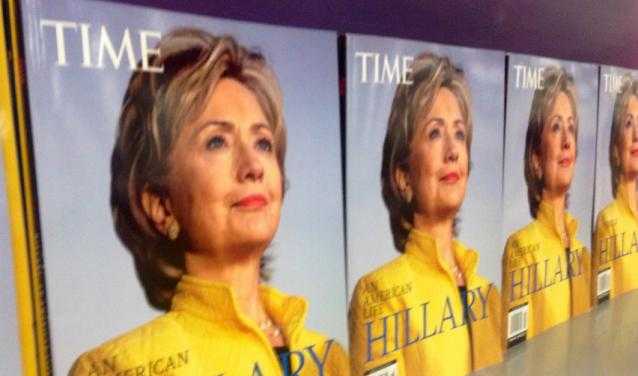Home>The Perils of November

10.03.2016
The Perils of November
The US presidential election is always big news. The long series of primaries in both camps, the media staging and an unending string of sound bites form the staple of the television news. It is an especially successful operation when the end of the president’s second term means an inevitable shift into the unknown. After all, we are talking about the superpower that supposedly dominates the world. The decision of voters on the other side of the Atlantic has an effect on everyone; the fate they hold in their hands extends well beyond their own borders. This is almost always true, but never more so than today.
- Obama’s diplomatic turning point
The 1990s were indecisive. Bill Clinton’s presidency amounted to a waste of time at the international level. The Wall was down, a new international order was waiting to be devised yet little of real substance was undertaken. The neoconservative rise to power changed all that, turning the end of bipolarity into the starting point of the last remaining superpower’s crusade to remake the world in its image. The 2008 election put an end to the disaster, with Jesusland’s zeal checked by a globalised America. Better yet, a new, utterly unprecedented American foreign policy started to take shape, midway between caution and boldness, doctrine and pragmatism.
The world will owe much to Barack Obama and his secretary of state John Kerry. For the first time, a US president was able to conceive of globalisation as other than incidental to the American order. The old American ideas of pluralism and balance finally found their place in a foreign policy that, after the Cairo speech in June 2009, no longer advocated a world cast from a single mould. For the first time, the head of the world’s greatest power admitted that American leadership was not omnipotent and that its armed forces could not solve everything. For the first time since the demise of the USSR, diplomacy and negotiation resumed their role; foreign affairs were no longer exclusively a matter of sanctions, punishment or exclusion. For the first time, it was admitted in Washington that the Israeli ally could be wrong. And daring steps were taken – with Cuba, with Iran, not to mention a humane compassion for migrants, whose faces recall the pioneers of old.
- The revenge of Jesusland
The neoconservative defeat had strengthened the globalised, multiethnic America enough for this new option to win twice. But now the swing of the pendulum could well facilitate the revenge of Jesusland, galvanized by populist winds and the disorientation felt by many Americans at the idea that their “boys” would no longer be the world’s policemen. The rhetorical assaults of Donald Trump and Ted Cruz have not even retained the ideological substance of neoconservatism. Rather than heading off to baptise all nations, it’s simply about flexing muscles and showing off tattoos. Building ever higher walls, plastering Mesopotamia with bombs, slamming the door in Muslims’ face… the arguments have abandoned the fight against evil and the famous “regime change” brandished by Bush to justify his actions. It is now just a matter of regaining lost strength. The idea has hit home with the public.
More seriously, the opposite camp is not playing the continuity card. Sure, Bernie Sanders appears to endorse Obama’s diplomacy, but besides the fact that his chances are growing slimmer as the primary progresses, he is more interested in campaigning on economic and social issues. Hillary Clinton has a reputation as a hawk that she has never belied. She supported the whole string of military interventions from Afghanistan to Iraq to Libya, and has openly criticised Obama’s caution in the Syrian conflict. A proponent of the use of force as a diplomatic instrument, she has not taken up the current president’s critical stance against interventionism. In the debate with Bernie Sanders, she even went so far as to blame him for increasing Israel’s vulnerability when he proposed, with great caution, to continue the policy of rapprochement with Iran – a whole manifesto in itself. To the point where some already see the neoconservatives discreetly making her their candidate.
Given this context, it may be feared that the next election will return American foreign policy to the low water mark we were used to: an excessive trust in force, drifting between a power whose purpose is to perpetually assert itself and a military capability at the service of naive missions. Faced with a Putin, Netanyahu or Erdogan, a “non-Europe” and the societies of the Global South in a state of constant implosion, the choice could prove catastrophic. It remains to be hoped that the new practices inaugurated by Obama will maintain at least some degree of irreversibility. History can never be entirely erased.
by Bertrand Badie, political science professor, CERI Sciences Po.
The original version of this article was published on The Conversation.
Find the MOOC "Espace Mondial" by Bertrand Badie, in English, French and Arabic, on the Coursera platform.
@Mike Mozart, Creative Commons, Flickr